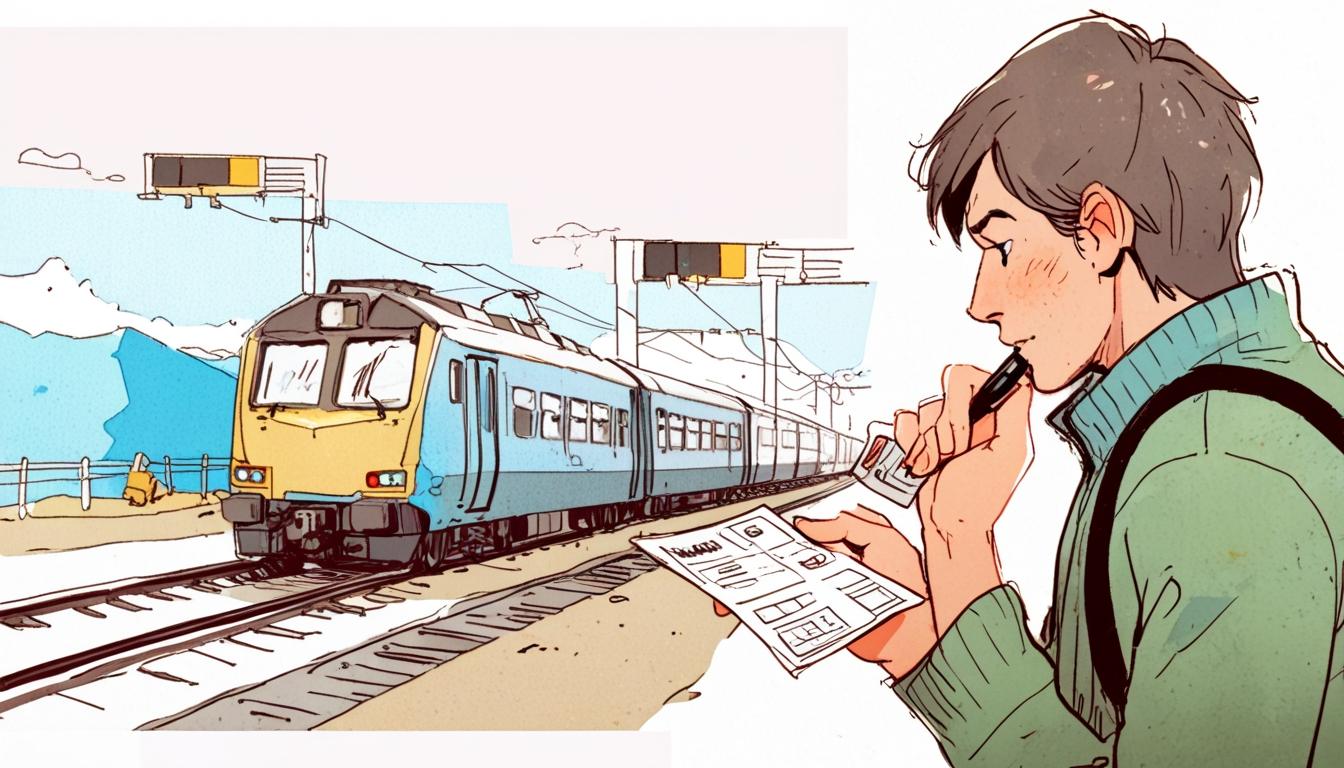As train fares in the UK continue to escalate, travellers are increasingly seeking alternative transport options to save on travel costs. A recent viral post on TikTok has drawn attention to an unconventional solution: flying from Manchester to London via Iceland. This creative travel hack highlights not only the rising expense of train journeys but also the lengths to which some are willing to go to enjoy a more affordable travel experience.
The user, known as Muscab, shared his journey on the platform, cheekily posing the question: “Can Iceland be a day trip that’s cheaper than a train from Manchester to London?” By booking a £21 flight from Manchester to Keflavik, followed by a £36 trip from Iceland to London Stansted, Muscab completed his excursion for a total of £57. This journey effectively allowed him to sidestep a hefty £130 train fare and also provided him with a brief adventure in Iceland, where he indulged in local cuisine and sightseeing.
Muscab's day trip, which he described as “easy,” contrasted sharply with the challenges faced by rail passengers across the UK. The train journey from Manchester to London typically takes around two hours, yet the spiralling costs of rail fares have sparked considerable public concern. Many social media users reacted to Muscab's video with disbelief, noting the apparent absurdity of flying being less expensive than taking a train—a sentiment echoed by several comments highlighting better, cheaper alternatives, such as coach services.
Indeed, a look at train pricing reveals that while fares can be reduced with advance bookings, as low as £14 in some cases, last-minute tickets often reach exorbitant prices, particularly during peak travel times. Comparatively, coach tickets can sometimes be secured for as little as £10, potentially offering a quicker and less cumbersome journey that avoids the hassles of airport security.
Public dissatisfaction with train prices is not a new phenomenon. Recent comments surrounding Muscab's journey reflect a growing frustration within the UK regarding rail cost structures. Calls for reform and passenger advocacy are being amplified, with some urging for demonstrations against what they perceive as unjustifiable pricing.
To alleviate some of the financial pressures on passengers, various concessionary fare schemes are available, such as the 16–25 Railcard and the Senior Railcard. However, these schemes often leave many travellers without an option that embraces the rising costs of modern rail travel.
An upcoming government rail sale aims to address fare concerns by offering up to 50% discounts on over two million tickets for journeys made in early 2025. While this initiative may encourage some to consider train travel again, the broader issue of affordability remains, prompting an urgent need for lasting reforms in the UK rail system.
As Muscab puts it, flying can be “just as easy as going on a train,” signalling a growing trend among travellers to weigh their options more critically. In an era where cost efficiency easily influences travel decisions, it is evident that creative solutions, however unconventional, might just be the way forward for those seeking to circumvent the rising tide of transport costs in the UK.
Reference Map
- Paragraph 1: [1]
- Paragraph 2: [1]
- Paragraph 3: [2], [5]
- Paragraph 4: [2], [6]
- Paragraph 5: [3]
- Paragraph 6: [4]
- Paragraph 7: [1], [4]
Source: Noah Wire Services
